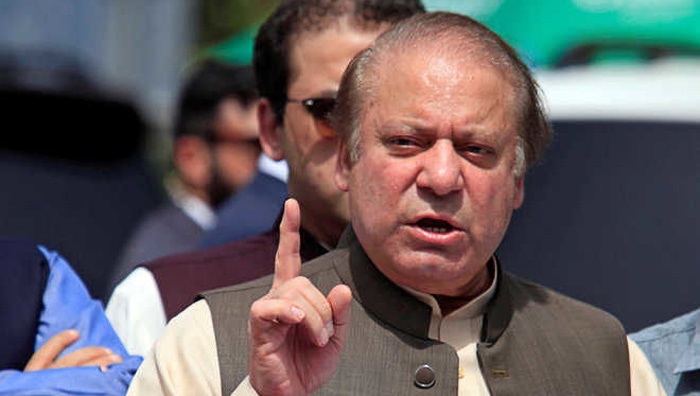Nawaz Sharif admits Pakistan violated peace agreement with India in 1999
Pakistan’s former Prime Minister Nawaz Sharif on Tuesday admitted that Islamabad had “violated” an agreement with India in 1999, in an apparent reference to the Kargil war.
Sharif made the remarks in a meeting of the PML-N general council that elected him president of the ruling party six years after he was disqualified by the country’s Supreme Court.
“On May 28, 1998, Pakistan carried out five nuclear tests. After that Vajpayee Saheb came here and made an agreement with us. But we violated that agreement…it was our fault,” said Sharif as quoted by news agency PTI.
The agreement with India that Sharif talked about was the “Lahore Declaration” signed between him and then Indian prime minister Atal Bihari Vajpayee on February 21, 1999. The agreement aimed to bring peace and stability between the two countries. But, just a few months later, Pakistani troops intruded into the Kargil district in Jammu and Kashmir, leading to the Kargil War.
At the meeting of the PML-N general council, Sharif claimed how he carried out nuclear tests despite pressure from the United States and took a dig at ex-PM Imran Khan.
“President Bill Clinton had offered Pakistan USD 5 billion to stop it from carrying out nuclear tests but I refused. Had (former prime minister) Imran Khan like a person been on my seat he would have accepted Clinton’s offer,” Sharif said on a day when Pakistan marked the 26th anniversary of its first nuclear tests.
Sharif claimed that former ISI chief Gen Zahirul Islam had played a role in toppling his government in 2017 to bring Imran Khan into power.
“I ask Imran not to blame us (of being patronised by the army) and tell whether Gen Islam had talked about bringing the PTI into power,” Sharif said and added Khan would sit at the feet of the military establishment.
Sharif also accused the then chief justice of Pakistan Saqib Nisar of removing him from the office of the Prime Minister in 2017 on a false case.

